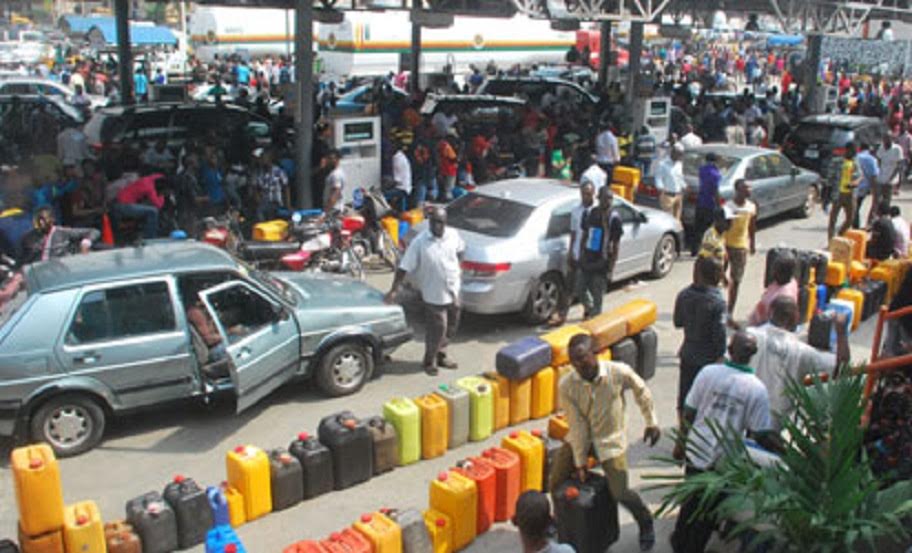Fuel queues have resurfaced across Lagos, causing significant disruption in Nigeria’s commercial hub due to a renewed scarcity of petroleum products.
In various parts of Lagos, long lines of vehicles have formed at filling stations, extending onto nearby streets and leading to severe traffic congestion. The price of petrol has surged, with some stations charging between N800 and N1,000 per litre, further driving up transportation costs.
Many filling stations are either closed or not dispensing fuel, while black marketers have seized the opportunity to sell fuel at inflated prices.
This shortage extends beyond Lagos, with several northern states also experiencing ongoing fuel scarcity.
In response, the Federal Government, through the Nigerian Midstream and Downstream Petroleum Regulatory Authority (NMDPRA), has warned that it may revoke the licenses of filling stations found to be hoarding fuel. The NMDPRA has announced a crackdown on the illegal sale of petroleum products, particularly in jerrycans, and advised filling stations to avoid serving illegal vendors to prevent suspension of their retail licenses.
Last month, the Nigerian National Petroleum Company Limited (NNPCL) attributed the fuel scarcity to delays in the discharge operations of several vessels. NNPCL spokesman Olufemi Soneye explained that these delays, coupled with flooding affecting truck routes, have hampered the distribution of petrol from coastal areas to major cities like Abuja. NNPCL has assured that efforts are underway to resolve the issue and restore normal fuel supply.
